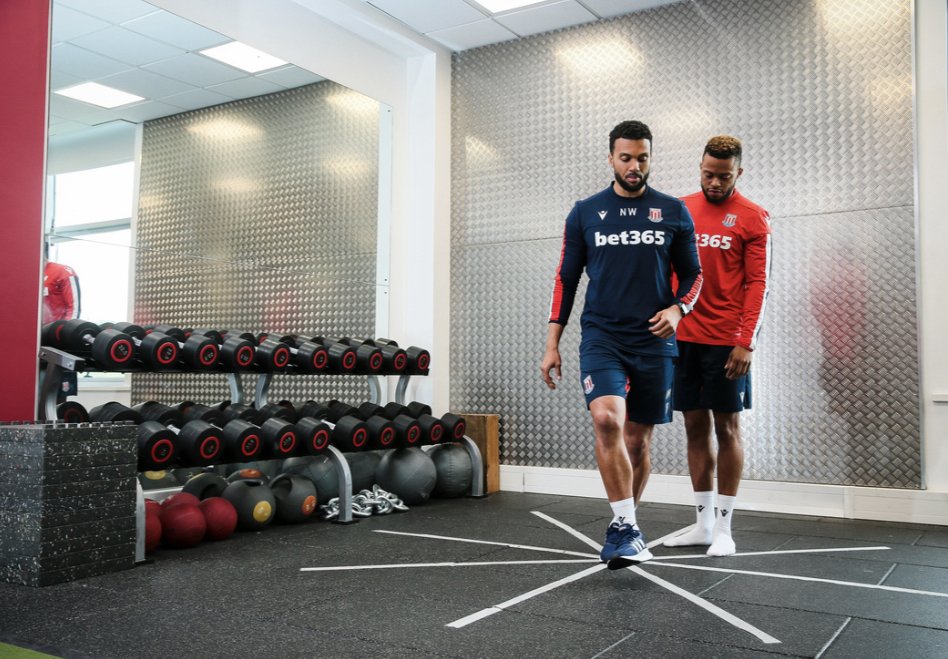About Sport Rehabilitation
What is Sport Rehabilitation?
Sport Rehabilitators help people suffering from musculoskeletal pain or injury. They help people of all ages and all backgrounds to maintain their health and fitness and recover from injury. Sport Rehabilitators prevent injury and reduce pain using exercise, movement and manual based therapeutic interventions.
Education and training includes public health, behaviour change and pain science with a strong focus on exercise rehabilitation for varied patient populations, including those with long term conditions and non-communicable disease.
They work in a variety of settings including the NHS, Ministry of Defence, Private Practice, Sport and more.
What to expect from your Sport Rehabilitator
An initial consultation will offer an in-depth discussion and physical assessment to identify an appropriate diagnosis, any predisposing factors to injury and any other health related disorders. Your Sport Rehabilitator will then use clinical reasoning to tailor a recovery plan to return you to optimum function and physical activity. You can expect your Sport Rehabilitator to integrate advice, assessment, education and rehabilitation into all aspects of your life.
Sport Rehabilitators are trained to carefully record and protect all personal information, including relevant sensitive information as part of the treatment session. Effective record keeping enables your Sport Rehabilitator to ensure accurate and appropriate progression in your ongoing care.
What could my treatment include?
Treatment will incorporate a comprehensive assessment, evidenced based therapeutic interventions and exercise with the plan being monitored and modified where needed. This could include exercise rehabilitation, graded activity, manual therapy, workplace assessment and modification, massage, taping / bracing and electrotherapy.
Sport Rehabilitators will use a complete approach, considering the whole needs of the individual to allow optimal recovery and placing the patient at the centre of their own care.
What sets Sport Rehabilitators apart?
Sport Rehabilitators have a strong focus on biomechanics, exercise rehabilitation and returning patients to high levels of function.
Sport Rehabilitators treat a range of injuries including:
Back, neck and spine pain - lower back pain, sciatica, disc problems and more
Pains and sprains in ankles, knees, shoulder, neck, groin, hip etc
Post-operative rehabilitation - (spinal, shoulder and knee surgery, joint replacements)
Total knee replacement rehabilitation
Achilles Tendinopathy
Cruciate ligament rehabilitation
Tennis elbow
Carpal tunnel syndrome
Bursitis
Injuries with an uncertain diagnosis
Post spinal surgery
Post trauma, including fractures
Chronic pain
Repetitive strain injuries
Registered Sport Rehabilitators are included in the General Medical Council referral guidelines and can take referrals from the wider healthcare team. Some of the patient populations they are trained to work with include:
Osteo and Rheumatoid Arthritis
Cancer
Chronic Obstructive Pulmonary Disease (COPD)
Mental Health and Dementia
Cardiovascular Disease
Stroke
Heart disease
Peripheral artery disease
Hypertension
Obesity
Older Populations
Osteoporosis
Sarcopenia
Falls Prevention
Pregnancy
Living with Chronic Conditions
Throughout the treatment process, patients will continue to be assessed and monitored with appropriate medical referral as needed.
Are there any risks associated with treatment?
Sport Rehabilitators assess the risks and benefits of their treatment plans and associated interventions as part of their person-centred complete approach. The evidence-based treatment interventions recommended for you will be based upon an accurate and effective clinical assessment, as well as ongoing monitoring of your progression through rehabilitation.
Simple examples of the types of risk management your Sport Rehabilitator will undertake are:
Accurately assessing the stage of healing or recovery of your injury, illness or condition and matching the graded exercise rehabilitation intervention to your status.
Effectively assessing the presence or probability of underlying medical conditions before recommending a manual, electrophysical or exercise-based intervention.
Maintaining equipment used for treatment according to manufacturer guidelines.
You can expect your Sport Rehabilitator to discuss the risks of individual interventions with you and refer your care on to other members of the healthcare team if it is appropriate.
Occasionally, a treatment plan or individual intervention will have an unforeseen consequence. For example taping/strapping or other manual treatment application might cause a skin reaction when used for the first time. Or, more post-treatment soreness than would be expected, as a patient takes a step onward in their exercise rehabilitation plan. These unforeseen consequences are usually minor, your Sport Rehabilitator will identify them and respond by adapting their approach accordingly.
Registration with BASRaT
BASRaT registered Sport Rehabilitators complete an accredited three-year BSc honours degree or an accredited Masters degree along with the successful completion of more than 400 clinical hours supervised by a healthcare professional.
The course content and teaching methods are continuously monitored and annually audited by BASRaT to ensure consistently high standards. In addition to successfully passing an accredited programme, all BASRaT registrants must pass an independent national registration exam.
International Recognition
BASRaT has always been a vocal supporter of the multidisciplinary healthcare team and the strong role that Sport Rehabilitation and Athletic Therapy play as a vital part of that team both nationally and globally. BASRaT has been working alongside our professional peers in the BOC (USA), NATA (USA), CATA (Canada), ARTI (Ireland) and others over the last few decades where we have seen our respective local professions grow in both quality and strength.
Regulation
BASRaT's register is accredited by the PSA (Professional Standards Authority), the UK's top healthcare and medical oversight body. Sport Rehabilitators on the BASRaT register must adhere to a strict code of ethics, conduct and professional practice. All registered Sport Rehabilitators have comprehensive insurance, a current first aid qualification and follow strict standards for the management of medical records and appropriate referral to other members of the healthcare team.








